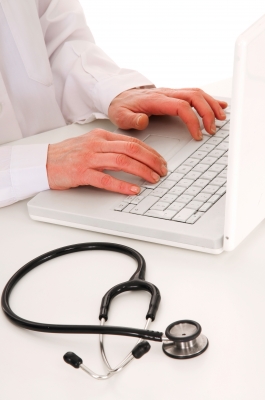By Barbara Ficarra, RN, BSN, MPA
Illinois Nurses Association Highlights Social Media
The Illinois Nurse, the official publication of the Illinois Nurses Association highlights social media for nurses and offers continuing education credits in the March 2012 edition, Volume 8, No. 1.
 Social media has changed the landscape in health care and it is a powerful and phenomenal platform to help educate consumers, raise awareness of health issues and connect with consumers and colleagues.
Social media has changed the landscape in health care and it is a powerful and phenomenal platform to help educate consumers, raise awareness of health issues and connect with consumers and colleagues.
Social media gives a voice to patients and consumers and it allows the conversation to get started. Nurses have the opportunity to engage with consumers and colleagues.
“Can Nurses and Social Media Coexist? A Cautionary Tale…” by Chris Martin is an informative article that provides information on how nurses can successfully use social media in the workplace and avoid the professional pitfalls.
Nurses share their insights on social media
Donna Petko, BSN, RN, a clinical coordinator at Nightingale Home Healthcare in suburban Chicago, “has taken up the challenge of using social media in a nursing context,” writes Martin. “Petko and her colleague Nancy Onyett, FNP-C, recently started a Twitter chat specifically designed for advanced practice nurses called #APRNchat.” “Petko says that engaging in social media has helped her maintain professionalism and stay current on a range of health care topics,” writes Martin.
Karen A. Daley, PHM, RN, RAAN, and president, American Nurses Association (ANA) is quoted as saying, “Social media can be a powerful tool, one with the potential to enhance or undermine not only the individual nurse’s career, but also the nursing profession.”
I’m delighted to have been interviewed for this continuing education article on social media for nurses. Martin writes: “According to Barbara Ficarra, RN, BSN, MPA a pioneer among nurses using social media…nurses can easily incorporate social media into their practice but it’s vital they remain professional.” I’m further quoted as saying, “I do believe that nurses can and should share their knowledge and expertise on a broad scale by deeply connecting and engaging in social networking.” “Nurses have the opportunity to share trusted and accurate health information and to empower patients to be proactive in their health.” “Through social media, nurses can be agents of change,” Ficarra said. “They can help promote health and wellness issues. Nurses have the opportunity to educate patients and consumers, raise awareness of health issues and social media offers a forum to collaborate and connect.”
Thanks to the Illinois Nurses Association, The Illinois Nurse and Chris Martin for addressing and highlighting the topic of social media for nurses.
Your turn
We would love you to share your insightful thoughts in the comment section below.
Are you a nurse, doctor or other health care professional who engages in social media? How do you use social media?
Health consumers, do you engage with health care professionals in social networking sites?
As always thank you for your valuable time and for sharing your valuable insights.
Connect with me | Stay in touch
Follow Barbara on Twitter
Visit Barbara on Facebook
Like Healthin30
Connect with Barbara on Linkedin
Become a fan on Huffingtonpost
Related Posts
3 Reasons Why Social Networking Is Not a Waste of Time for Health Professionals
List of 20 Excellent Social Media Networking Resources
Social Media: Medical Social Networking – Part 2
Social Media: Pharma Industry Considers Patient Engagement a Must
Scripps Jumps the Curve by Tapping into Social Media Networking for Nurses
A Brilliant Reason to Dive Deep into the Social Media Health Space
What are the Legal Implications for Doctors, Nurses and Hospitals Engaging in Social Media?
Connection is Critical in the Social Media Networking Space

A perfect example of how social media has affected nursing is the case of Amanda Trujillo, RN. I’m not going to go into the specifics now, but due to social media she received a surge of supporters and discussions on what defines patient education, and what is our role as nurses.
Prior to social media, we most likely never would have heard about her case, or had the chance to comment and express our concerns, and support for her.